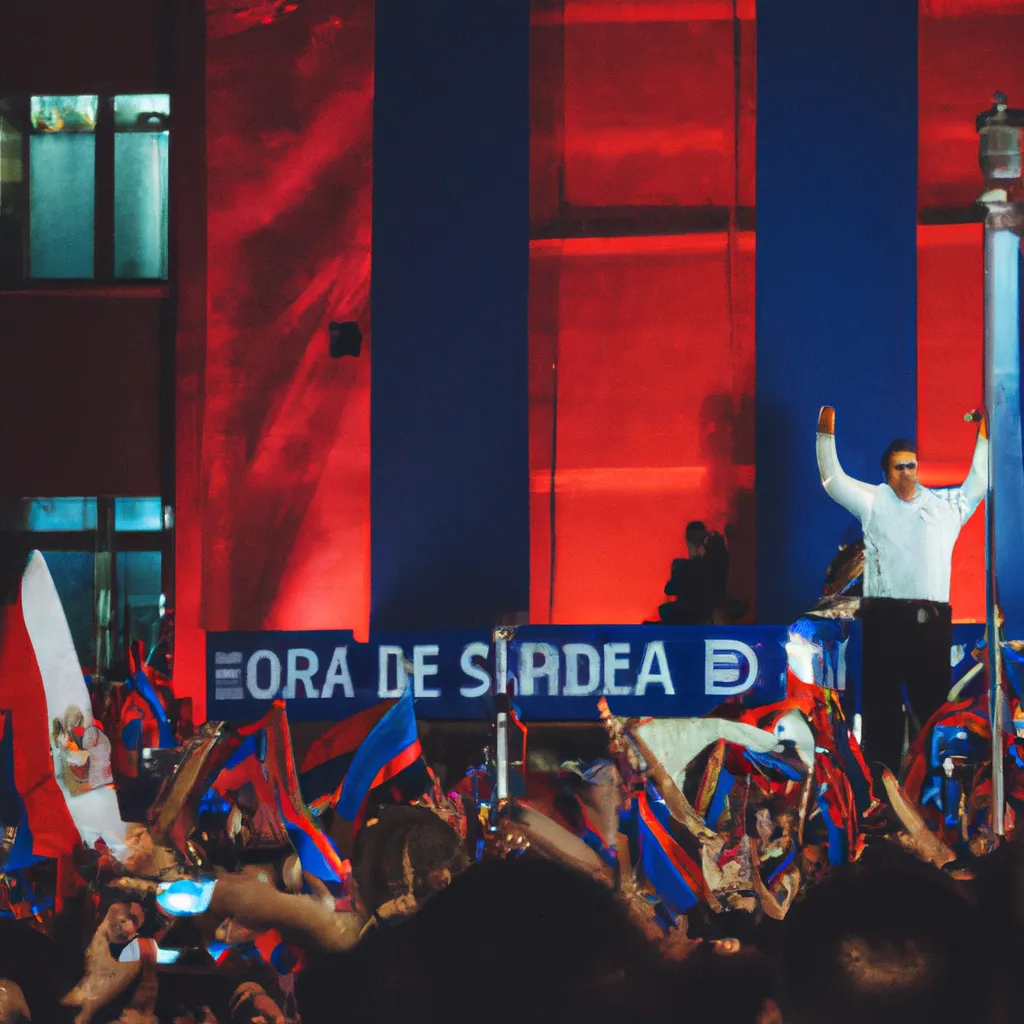Serbian President Aleksandar Vučić resigns as leader of the SNC party while remaining head of state.

Serbian President Aleksandar Vucic stepped down as leader of the ruling Serbian Progressive Party (SNS) at the party congress, saying a new approach was needed to unify the country, but added that he would remain as head of state.
Highlights:
- Alexandar Vučić will no longer lead the SNS, but will remain a party member and remain president of Serbia.
- Defense Minister Milos Vucevic will replace him as party leader, as he proposed
- Opposition representatives and rights protection bodies have often accused Mr. Vučić and the SNS of autocracy, oppression of media freedom and violence against opponents
Vucic was supported by tens of thousands of people from Serbia, Kosovo, Montenegro and Bosnia who gathered in the center of Belgrade after large-scale anti-government protests following two shootings that killed 18 people earlier this month.
Another anti-government protest is planned for Saturday.
The SNS leaders accepted Vucic's resignation at a party congress in Kragujevac, in central Serbia, and appointed Defense Minister Milos Vucevic to take his place, as Vucic had proposed.
In his speech at the congress, Vucic said he believes it is necessary to take "a slightly different approach to unite more of those who want to fight for the victory of patria successful Serbia that will focus on its citizens, a country that will not look for reasons for division, but will strive for unity and harmony. "
Opposition parties and law enforcement bodies have long accused Mr. Vucic and the SNS of autocracy, oppression of media freedom, violence against political opponents, corruption and links to organized crime. Mr. Vucic and his allies deny the allegations.
Mr. Vucic said at the SNS congress that he will remain as head of state and party member.






After his appointment, Mr. Vucevic confirmed that SNS will join the political organization that Vucic plans to establish on June 28. "If Vucic is the locomotive of this movement, SNS will be the first wagon," Mr. Vucevic told reporters.
Vučić announced the creation of a new movement for SNS and its allies, unofficially called the People's Movement for the State, in March.
Vucic became SNS president in 2012, succeeding Tomislav Nikolic, who had held the post since 2008, when the party was founded as a branch of the ultranationalist Serbian Radical Party.
He also maintains close ties with Russia and China.
NATO calls on Kosovo to reduce tensions.
NATO on Saturday urged Kosovo to reduce tensions with Serbia after the Kosovo government forcibly gained access to municipal buildings to install elected ethnic Albanian mayors in those areas of the country.
The result of Friday's clashes between Kosovo police and protesters opposed to the mayors who have become part of the Kosovo administration was the Serbian army going on full alert and moving its units closer to the border.
"We call on the institutions in Kosovo to immediately reduce tensions and encourage all sides to resolve the situation through dialog," NATO spokeswoman Oana Lungescu said.
She also noted that the NATO-led international force mission in Kosovo, KFOR, will remain vigilant.
For nearly a decade after the end of the war, Serbs in northern"Those who are elected in democratic elections should be allowed to hold office without threats or hedges. Citizens should also be served by elected officials," Mr. Kurti said on Saturday. The situation remains tense in the northern part of the country, with police forces heavily armed and in armored vehicles guarding municipal buildings.
Comment
Popular Posts
Popular Offers

Subscribe to the newsletter from Hatamatata.com!
Subscribe to the newsletter from Hatamatata.com!
I agree to the processing of personal data and confidentiality rules of Hatamatata








